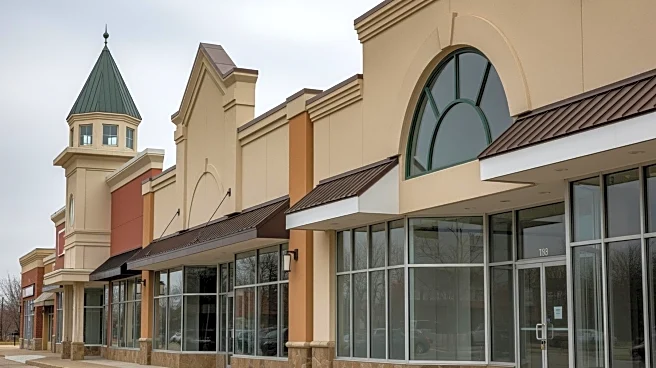What's Happening?
Several retail chains in Michigan are closing locations due to ongoing economic challenges, including inflation and changing consumer shopping habits. The article highlights the impact of these closures on local communities, noting that many residents
are witnessing their favorite stores disappear. The shift from traditional in-store shopping to online purchasing has further exacerbated the situation, as companies struggle to adapt to technological advancements and the aftermath of the COVID-19 pandemic. While some businesses have managed to adjust, others have been forced to downsize or file for bankruptcy, leading to a significant number of closures across the state.
Why It's Important?
The closure of retail chains in Michigan reflects broader economic trends affecting the retail industry nationwide. As inflation continues to rise, consumers are tightening their budgets, which impacts sales and profitability for businesses. The shift towards online shopping has also disrupted traditional retail models, forcing companies to innovate or face closure. These developments have significant implications for local economies, as store closures can lead to job losses and reduced economic activity in affected areas. The situation underscores the need for businesses to adapt to changing market conditions to remain viable.
What's Next?
As the economic landscape continues to evolve, more retail chains may face similar challenges, potentially leading to further closures. Companies will need to explore strategies to enhance their online presence and improve operational efficiency to survive. Local governments and economic development organizations may also need to consider initiatives to support affected communities and stimulate economic growth. The ongoing situation will likely prompt discussions on how to balance technological advancements with the preservation of traditional retail spaces.
Beyond the Headlines
The closures of retail chains in Michigan highlight the cultural shift in consumer behavior, as convenience and technology increasingly dictate shopping preferences. This trend raises questions about the future of brick-and-mortar stores and the role they will play in communities. Additionally, the economic pressures faced by businesses may lead to increased consolidation within the industry, as companies seek to leverage economies of scale to remain competitive.















